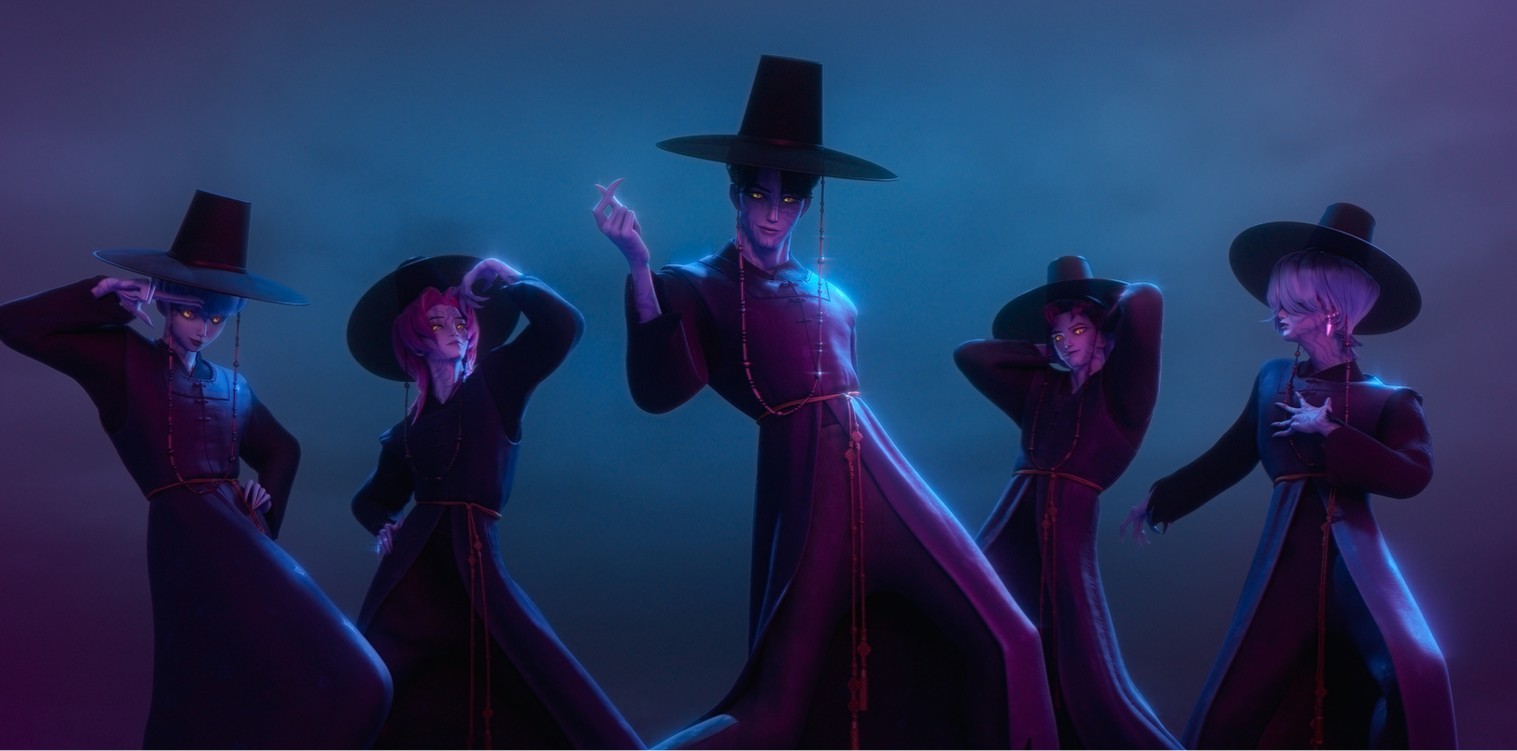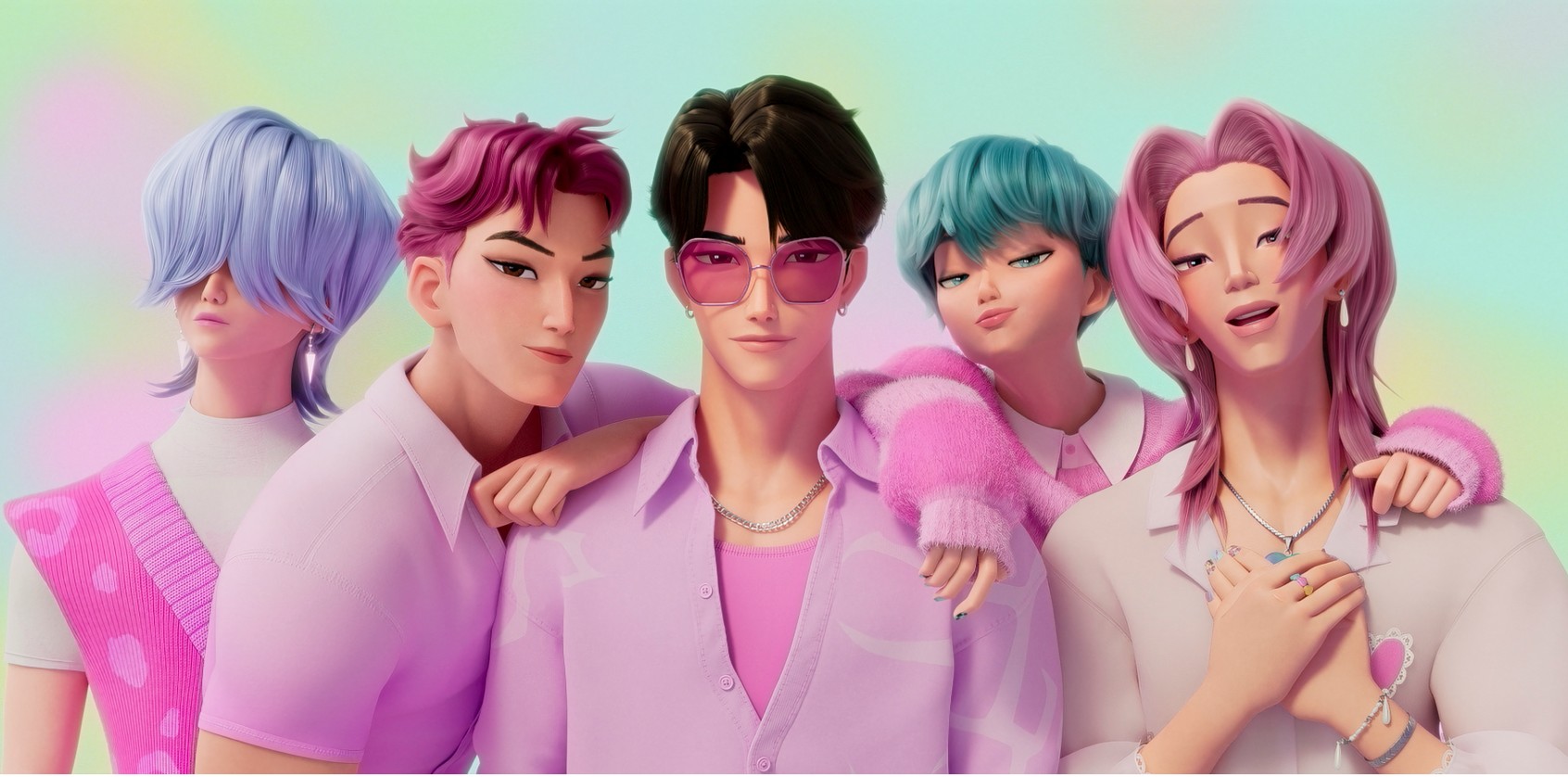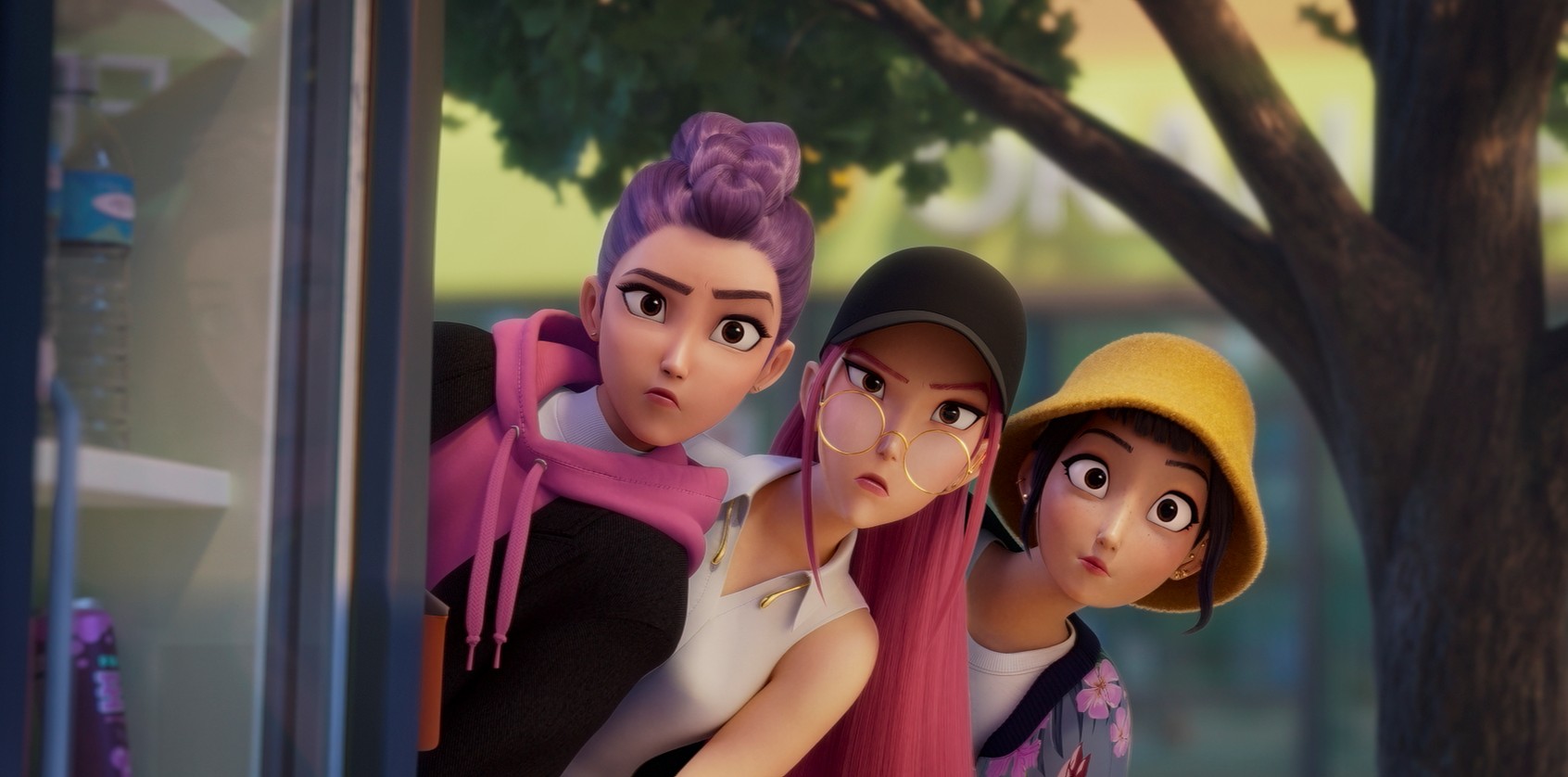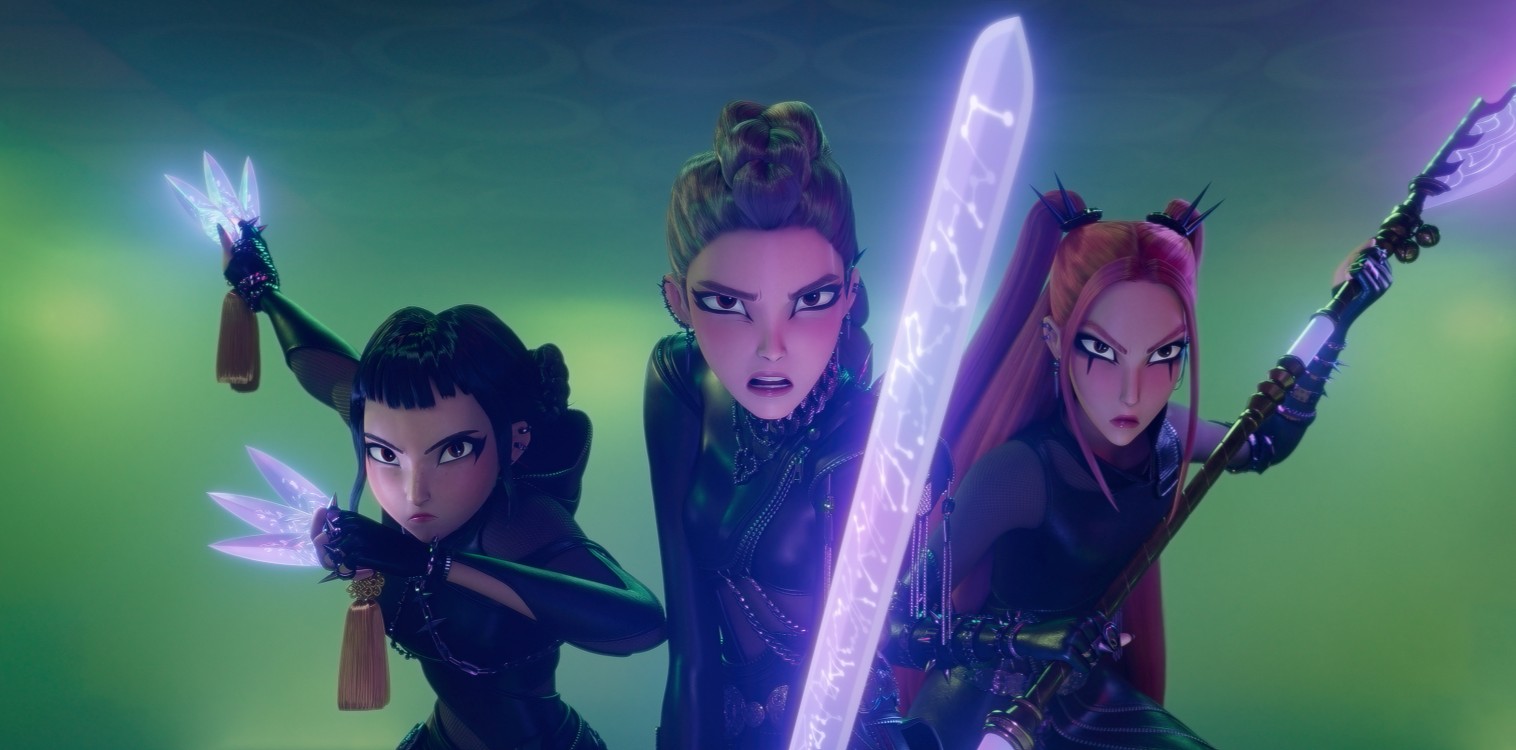At the end of Netflix’s ‘KPop Demon Hunters,’ Gwi-Ma’s powers push the world to the brink of destruction. So far, Huntrix has protected the world from demons through its music’s power, connecting fans worldwide. Things change with the arrival of the Saja Boys, who threaten to disrupt a peace effort spanning generations. Forced to confront their inadequacies, the protagonists hit their lowest point. Meanwhile, Jinu struggles with the memories of his past and is forced to pick a side. With no resolution in sight, all the characters turn to music as an outlet for their thoughts and expressions. Meanwhile, Rumi, having spent her entire life restricting herself, resolves to break free of evil and find her space in the world. SPOILERS AHEAD!
KPop Demon Hunters Plot Synopsis
The story begins with the history of the Demon Hunters, who use their music to protect the innocents from the demons. In the present day, the demon hunters — Rumi, Mira, and Zoey constitute the K-pop girl group Huntrix, spreading joy and hope among their fandoms while defeating the evil lurking in the shadows. After thwarting the demons’ most recent attempts, the trio looks forward to their vacation but are roped back into work by Rumi, who pushes for the release of their landmark single ‘Golden.’ As the song waves across the music world, they seem closer than ever to their end goal: the completion of the Honmoon, a magical protective barrier that protects them from the Demon King Gwi-Ma. Right before their live performance, Rumi begins to lose her voice, revealing that she is part demon and has hidden that fact from the rest of the trio.

Meanwhile, running out of ways to beat Huntrix, Gwi-Ma decides to use Jinu, who suggests using his musical abilities to create a demon boy band and swoon the fans, corrupting the Honmoon. The group takes on the name Saja Boys and, using their charm and tricks, quickly becomes Huntrix’s main competition. During one of their clashes, Jinu discovers Rumi’s truth, and the two proceed to interact more frequently, eventually developing feelings for each other. Rumi urges him to rebel against his realm and help her win the Idol Awards, which in turn would beat Gwi-Ma and free all demons from his control.
Jinu initially agrees but is threatened with submission by the demon king, who weaponizes the musician’s past. As the Idol Awards roll out, Huntrix has an impressive showing, which features a solo section by Rumi. Things take a turn when her partners are swapped by demon impersonators, who reveal her secret to the world and begin menacingly attacking her feelings of shame and self-hatred. Zoey and Mira bear witness to all of this and, feeling betrayed, break ties with the protagonist. With her body rapidly converting into that of a demon, Rumi leaves on her quest for answers, determined to stop evil from taking over the world.
KPop Demon Hunters Ending: Does Rumi Take Down Gwi-Ma? Do the Hunters Reconcile?
Following the public breakup of Huntrix, a chasm seems to form in the musical consciousness of the audience, resulting in the Honmoon falling apart. The Saja Boys quickly used this opportunity, inviting their fans to Namsen Tower at midnight, promising a special concert. In actuality, their aim is to lure the souls in and feed them to Gwi-Ma, returning him to his true glory. One by one, everyone, including Zoey and Mira, falls prey to the demon lord’s tactic of targeting their insecurities. The dazed crowd marches right into Gwi-Ma’s reach but is stopped by Rumi. Realizing that the Honmoon has been destroyed, she determines to create a new one from scratch, using her music to pull at the audience’s heartstrings, channeling that energy into a brand new, stronger protective barrier, putting an end to the demon king’s reign of terror.

Rumi’s efforts bear fruit as her powerful song reaches Mira and Zoey, who snap out of the mind control and join her in the performance. Gwi-Ma tries to raise an army to stop this rebellion but is no match for the united Huntrix. Their power does not come out of nowhere; it is the culmination of their love and trust. Throughout the narrative, Huntrix has to face numerous internal conflicts, which all tie into Rumi hiding her true nature. The trio’s integrity is threatened when the secret comes out, as it goes against all the values they have been taught. In the end, it is Rumi’s song that makes them aware of the true value of a person, which goes beyond their appearance and depends more on the contents of their hearts. No longer unaware of each other’s suffering, Huntrix reunites stronger than ever and reaches the climax of their song “What It Sounds Like.”
Huntrix’s message of accepting one’s flaws lies fundamentally at odds with Gwi-Ma, who decides to enter the fight himself and curb the Demon Hunters’ forces. He nearly manages to overpower them but is unable to because of Jinu’s brave sacrifice, giving Rumi the push needed to slash through the demon king’s body. As the antagonist’s grip on his ability loosens, multiple souls are released and fuel into Rumi’s final charge. Together with Zoey and Mira, she successfully manages to create the new Honmoon, which blankets the entire city and rids it of evil. The power of music connects the hearts of everyone alike, and they all look up to see Huntrix soaring high in the sky, having achieved their mission and reconciling their differences. The two trios look on, promising to maintain this era of peace and togetherness.
Why Does Jinu Sacrifice Himself?
Huntrix’s success would not have been possible without Jinu protecting them with his life. Following his submission to the demon king, he concocts an elaborate plan to take the demon hunters down, using the very song that she fought against in an attempt to bridge the gap between humans and demons. While this appears to be a particularly sinister move, it belies his genuine emotions of sadness and guilt. Jinu acts without realizing that his actions only strengthen Gwi-Ma’s grip on his soul. Upon realizing the truth, he decides to rebel, staking his very soul on a just cause, so that humanity no longer has to suffer as his family once did.

Jinu’s motivations are multilayered, but all come back to his past as a human. In an earlier conversation with Rumi, he explains that his human life four hundred years ago was marked by poverty, due to which he made a deal with Gwi-Ma, instantly attaining fame and riches as the court musician of his king. It is later revealed that his end of the bargain was to give up on his family and live a life of selfish indulgence. However, this keeps nagging at him, filling his life with shame and guilt, which Gwi-Ma actively feeds on before ultimately claiming his life. In hell, Jinu is allowed to keep his voice but lives as an eternal slave to his king. He believes that he deserves a life of punishment and that the only way to make it out is not redemption but rather forgetting his past entirely, untethering him from his guilt and, thus, from Gwi-Ma.
Jinu finds release from his tortured mind in the time he spends with Rumi. Being the first to find out her secret, he quickly develops a connection, one that continues to deepen with each subsequent meeting. What starts out as a casual flirtation with a fierce enmity in the background gives way to a genuine bond over their shared love for music. Rumi reminds him that he has more to offer than the sins of his past and that he should fight for his humanity. While he tussles with this choice throughout the narrative, Rumi’s final performance moves him, forcing an amendment to his way of life. In his final moments, he thanks the protagonist for accepting his evil past and still embracing him, claiming that she has freed his soul. As it continues to reside inside her after the fight, it is possible that a part of Jinu is still alive, reverberating through her music.
How Does Rumi Accept Her Demonhood?
Rumi’s central arc throughout the story is her nature as a half-demon. Initially, she continues to hide it, hoping to accelerate the completion of the Honmoon and get rid of Gwi-ma for good. As time passes, however, her situation worsens, with her demonic features, body marks, and unnatural voice taking over. The more she tries to cover them, the larger the wall between her and her trusted allies grows, eventually affecting their music and relationship. Over the course of the final fight, Rumi comes to embrace her other side without shame, internally winning the battle with the demon king. This metamorphosis is symbolized by the change in her appearance, as the dark marks, earlier an object of fear and hatred, now take on a brighter color. Rumi is no longer afraid of showing her scars to the world and performs freely with them.

Being part-demon, Rumi also shows a higher level of sensitivity toward her enemies. Celine, the previous generation witch hunter, teaches various facts about Demons in an axiomatic fashion. The trio grows up believing that Demons are universally evil, with nothing to show for emotion. The protagonist’s encounter with Jinu reveals to her the story of the other side, making her hesitant to write hateful lyrics. When her demonic nature takes over, she rushes to Celine and confronts her regarding her ways of thought. Rumi expresses in anguish that things could have turned out differently if she had been loved for her complete self. The Demon Hunters’ lack of care about their well-being is embodied by their Mantra, which encourages hushing up one’s persona and internal issues for the greater good. Rebelling against this system, Rumi decides to reject Honmoon itself.
Huntrix finds its footing by letting go of tradition and carving out a path of its own, one that doesn’t suffocate them in the process. While Rumi already displays these new values through her renewed self-expression, the rest of the trio soon catches on. Mira, who has settled into a life of people-pleasing to make sure she is not ostracized due to her wild ideas and concepts, decides to live for herself, unabashedly displaying her creative prowess. Zoey, whose rough nature leads her to believe that she will never have true company, learns to lead a life of self-respect, one that doesn’t require softening her personality. Huntrix then directs their efforts outwards to their fans, as it’s their connection to music that empowers the new Honmoon. Thus, the trio continues to reinvent itself and infuse the world with positivity.
Read More: Blood of Zeus Season 3 Ending Explained: Does Heron Die?


